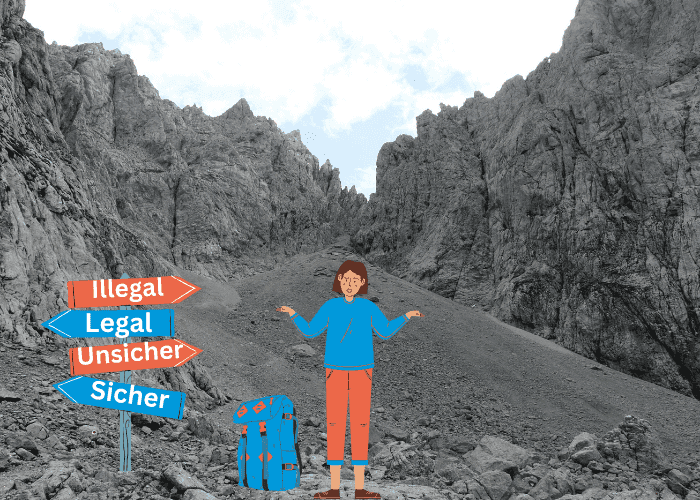Published on 05.01.2024 by Teresa Kuen
Disclaimer: This article is not an implied or explicit legal advice or legal advice and is intended for informational purposes only. Reisigo does not claim to be complete and disclaims any liability for third-party content that can be accessed via our website.
When you plan trips for your community, it can quickly happen that you are carrying legal baggage with you. Namely the package travel law, which ensures clearly defined obligations for organizers and rights for travelers.
This includes:
These regulations do not apply to clubs or to trips that are not offered officially or for profit. Not even if the trip lasts less than 24 hours and does not include accommodation.

The flat rate and commercial law, unfortunately confusing
When does a trip count as a package trip (package holiday)?
A package holiday includes at least two types of services such as accommodation, transport or other tourist services such as bike rental or on-site yoga classes (if these services account for at least 25% of the total travel price or are an essential feature).
Example: Yoga on Lake Garda
4 nights – EUR 800 per person
Included:
4 nights at the Hotel Mustermann
4 x breakfast
6 yoga classes (worth 100 EUR)
Hotel's own wellness area
The offer does not include travel
In addition to overnight stays, the offer includes other tourist services, namely yoga classes.
Although the other tourist service does not reach the reference value (25% of the total value of the combination), this is a package tour due to the promotion of the combination. The included yoga classes are clearly an essential feature of the “Yoga on Lake Garda” package and are also advertised as an essential feature.

If yoga classes are an essential feature, it is a package tour
Stumbling blocks in the package tour
You quickly stumble into the package travel law, because regardless of whether different tourist activities are booked by different providers, as soon as they are only connected with a booking recommendation (e.g. via a link), it is considered a package trip. An example would be a yoga teacher who offers sessions and points out the possibility of booking a hotel.
Describing the holiday as a “package/combination trip/complete offer” or selling it with a total price/all inclusive also makes it a package holiday. Basically, the trip can also be put together individually. If you are unsure, we always recommend legal advice.

Unfortunately, you soon stumble over the package travel law
Package holidays – who is liable and for what?
Short and sweet: The tour operators. This is for the proper implementation of all travel services included.
All problems that arise (e.g. with accommodation) must be remedied or compensated for by the organizer at no additional cost. In case of difficulties, organizers are obliged to provide assistance. This could mean, for example, that information about health services is provided in the event of illness.
In order to protect customers in the event of the organizer's insolvency, insolvency insurance must also be taken out so that the deposits are not lost and the return journey is ensured.

Being a tour operator is a big responsibility
Who is allowed to offer package tours?
It is illegal to offer trips that fall under the blanket law if you do not have a travel agency business license. Tour operators without a “legal travel license” are regularly sued and that can be really expensive.
Even if you don't offer a package holiday, you can still be covered by commercial law. We therefore always recommend legal advice to be on the safe side.
With us you are on the safe side, because Reisigo takes care of organizing your package trip for you.

Finding the legal way to arrange your trip is not always easy